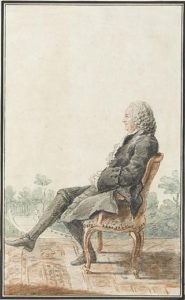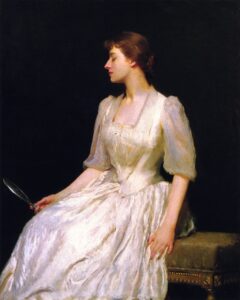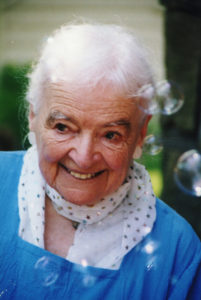Dear Zazie, Here is today’s Lovers’ Chronicle from Mac Tag dedicated to his muse. Have you known sadness? Rhett
The Lovers’ Chronicle
Dear Muse,
© copyright 2020 mac tag/cowboy coleridge all rights reserved
© copyright 2019 mac tag/cowboy coleridge all rights reserved
of course i felt like
burnin’ everything down
gave the finger to Faith,
told Hope to go to hell,
and gave Grace away
there was nothin’ left
nowhere to hide
the rope was played out
cannot say
what kept me holdin’ on
pure stubbornness i s’pose
anyhow,
grateful for what i have
and for you
© copyright 2018 mac tag/cowboy coleridge all rights reserved
thanks Karen…
i love the way
your name sounds
in a candlelit room…
did you know
that lionesses
and cowboys always
land on their feet…
our minds are strong,
our hearts are resilient
how else can you explain
givin’ everything you have
to someone only to find
it is not enough
and then sure enough,
much to our surprise,
after the fall, there it is
beatin’ stronger than before
recoverin’ from the rendin’
it gets through the hurt
and learns to beat for itself
anyhow, that is our story
we keep remindin’ ourselves,
and hopin’ we succeed
with the convincin’
however the disappointment comes
whether it be
from one sided love
or when the one you love
loves you and talks about
a rare connection then
of a sudden, insists it is over
either way, s’pose those
are moments in life
when one must accept
that sometimes
there is no understandin’
someone else’s feelin’s
and sometimes
it is better to let go…
let go… let go…
for one’s own well bein’
and we are learnin’
to spread our arms
and hold our breaths
© copyright 2017 mac tag/cowboy Coleridge/Dead Lioness all rights reserved
 Today is the birthday of Louis Racine (Paris 6 November 1692 – 29 January 1763, Paris); poet of the Age of the Enlightenment.
Today is the birthday of Louis Racine (Paris 6 November 1692 – 29 January 1763, Paris); poet of the Age of the Enlightenment.
The second son and the seventh and last child of the celebrated tragic dramatist Jean Racine, he was interested in poetry from childhood but was dissuaded from trying to make it his career by the poet Boileau on the grounds that the gift never existed in two successive generations. However, in 1719 Racine became a member of the Académie des Inscriptions and published his first major poem, La Grâce, in 1722. But, because of the poem’s Jansenist inspiration, Cardinal de Fleury, chief minister of Louis XV, blocked the poet’s admission to the Académie Française, and instead Racine was induced to accept the post of inspector-general of taxes at Marseille in Provence.
For the next 24 years, although he continued to write poetry, Racine worked as a tax inspector in various provincial towns and cities, marrying in 1728. His most important poem, La Religion, in which he was careful to avoid further accusations of Jansenism, was published in 1742. He eventually retired from government service in 1746, aged 54, and returned to Paris where he devoted himself to his writing.
In November 1755, he lost his only son and his daughter-in-law when they were swept away by the tsunami from the Lisbon earthquake while on honeymoon at Cadiz in Spain. This tragedy, commemorated by the French poet Écouchard-Lebrun, is said to have broken Racine’s spirit. He sold his large library, gave up writing, and devoted himself now to the practice of religion. It was around this time that Racine wrote his last published work, an essay on the famous feral child of 18th-century France Marie-Angélique Memmie Le Blanc whom he had interviewed and written of in his philosophical poem L’Épître II sur l’homme (1747) (Second Epistle on Man).
Racine was characterised by Voltaire, the leading French intellectual of his day, as le bon versificateur Racine, fils du grand Racine (“the good versifier Racine, son of the great Racine”). His Oeuvres complètes (complete works) were collected in six volumes and published in Paris in 1808.
His father’s poem (and my no doubt inept translation) “Choer D’Esther” served as inspiration for this poem:
Sadness
Lost then found then lost
Sadness; a story
Found
She found me against the odds,
Lonely, my life blood flowin’
Like water on earth, spreadin’
From beyond, I heard Her voice,
A lost man
Lost
I had seen love lost
Like a hidden beast
Its countenance bold
Governin’ the thunder
Tramplin’ the defeated
I had that happen, and happen again
Found
Then she came
Happiness in me who knew the sweetness
I felt young, in the shadow of her beauty;
The most charmin’ dreams have nothin’
comparable, comparable
The pleasure she spread in me
Lost
Then she was gone
Sadness in me who knows the bitterness
Sadness
Nothin’ soothes, nothin’ forgives;
Crazy heart abandoned
It awaits the return;
It excuses my weakness;
To get me down it hastens:
For the words she uncovered
Are all I know of affection
If I could share with her
Sadness
It shows there is no mercy
One of the not chosen
It has revealed its pain
Sadness
Ah Could I share with her
Sadness
That it not be blessed, that it not be sung;
Though it will be known to me
Beyond time and age
© copyright 2012 mac tag/Cowboy Coleridge all rights reserved
The Song of the Day is “Sadness” by Enigma.
| Dennis Miller Bunker | |
|---|---|

Jessica, 1890. Museum of Fine Arts, Boston
|
|
Today is the birthday of Dennis Miller Bunker (New York City; November 6, 1861 – December 28, 1890 Boston); painter and innovator of American Impressionism. His mature works include both brightly colored landscape paintings and dark, finely drawn portraits and figures. One of the major American painters of the late 19th century, and a friend of many prominent artists of the era, Bunker died from meningitis at the age of 29.
On October 2 Bunker married Eleanor Hardy in Boston. The couple then moved to New York. Returning to Boston to celebrate Christmas with the Hardy family, Bunker fell ill. On December 28 he died of heart failure, probably caused by cerebro-spinal meningitis. He was Buried at Milton Cemetery, Milton, MA and his tombstone was designed by his friends Stanford White and Augustus Saint-Gaudens.
Gallery

The Mirror


| Everett Shinn | |
|---|---|

Self-portrait done in 1901 in his charcoal style.
|
|
Today is the birthday of Everett Shinn (Woodstown, New Jersey; November 6, 1876 – May 1, 1953 New York City); realist painter and member of the Ashcan School. He also exhibited with the short-lived group known as “The Eight,” who protested the restrictive exhibition policies of the powerful, conservative National Academy of Design. He is best known for his robust paintings of urban life in New York and London, a hallmark of Ashcan art, and for his theater and residential murals and interior-design projects. His style varied considerably over the years, from gritty and realistic to decorative and rococo.
The 1940s saw his work included in more museum exhibitions and just prior to his death he was taken on by the prestigious James Graham Gallery in New York. In his best years, Shinn was well-paid and owned large houses in Connecticut and Upstate New York, but he went through a vast amount of money (along with four wives and numerous mistresses) and was financially straitened in his final days.
Gallery




-

Revue, 1903
-

Rehearsal of the Ballet, 1903
-

Girl in a Bathtub, 1903
-

A girl on stage, 1906
-

Strong Man, Clown and Dancer, 1909
-

Mrs A Stewart Walker in a Fur, 1910
-

Fifth Avenue, 1910 – – Brooklyn Museum
-

The Canfield Gambling House, 1912
 And today is the birthday of Anne Porter (Anne Elizabeth Channing; Sherborn, Massachusetts; 6 November 1911 – 10 October 2011 Hampton Bays, Long Island); poet. She was educated at Bryn Mawr College and Radcliffe College. When she was 16 she met artist Fairfield Porter and they were married by the time she was 20. She had been writing poetry since she was seven but now, as a busy mother of five, she didn’t have much time for her own pursuits. The choir and women’s group at the Methodist church were her only social outlets, apart from playing hostess to her husband’s artist friends. Sometimes she modeled for her husband’s paintings, but they weren’t portraits of her; she compared the experience to being an apple in a still life.
And today is the birthday of Anne Porter (Anne Elizabeth Channing; Sherborn, Massachusetts; 6 November 1911 – 10 October 2011 Hampton Bays, Long Island); poet. She was educated at Bryn Mawr College and Radcliffe College. When she was 16 she met artist Fairfield Porter and they were married by the time she was 20. She had been writing poetry since she was seven but now, as a busy mother of five, she didn’t have much time for her own pursuits. The choir and women’s group at the Methodist church were her only social outlets, apart from playing hostess to her husband’s artist friends. Sometimes she modeled for her husband’s paintings, but they weren’t portraits of her; she compared the experience to being an apple in a still life.
When her husband died in 1975, she began to write poetry much more seriously. As she told the Wall Street Journal: “I remember realizing that I was alone, and I’d have to be more organized. I had these poems, and I thought that it would be worthwhile working on them. I started to write.” Her first collection, An Altogether Different Language (1994), published when she was 83, was named a finalist for the National Book Award. Her other volume of poetry is Living Things: Collected Poems (2006). Her work has been anthologized in the Oxford Book of American Poetry (2006), and featured on Garrison Keillor’s radio program, The Writer’s Almanac.
An Altogether Different Language
A November Sunrise
by Anne Porter
Wild geese are flocking and calling in pure golden air,
Glory like that which painters long ago
Spread as a background for some little hermit
Beside his cave, giving his cloak away,
Or for some martyr stretching out
On her expected rack.
A few black cedars grow nearby
And there’s a donkey grazing.
Small craftsmen, steeped in anonymity like bees,
Gilded their wooden panels, leaving fame to chance,
Like the maker of this wing-flooded golden sky,
Who forgives all our ignorance
Both of his nature and of his very name,
Freely accepting our one heedless glance.
from An Altogether Different Language. ©1994 Anne Porter, published by Zoland Books.
Mac Tag
O how could I be so calm
When she rose up to depart?
Now words that called up the lightning
Are hurtling through my heart.
– WB Yeats



No Comments on "The Lovers’ Chronicle 6 November – spread your arms – birth of Louis Racine – art by Dennis Miller Bunker & Everett Shinn – verse by Anne Porter"